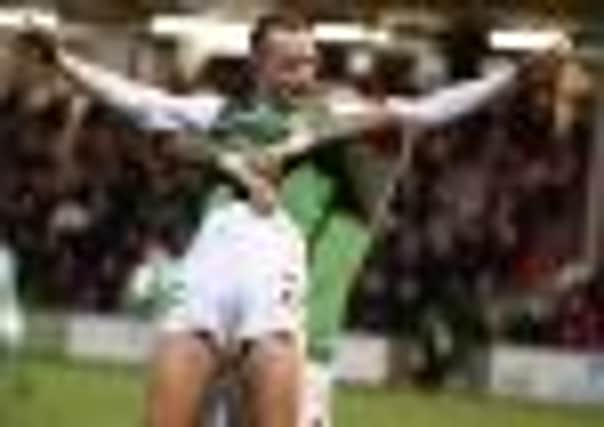Dunfermline 2 - 3 Hibernian: Adventurous approach pays off for Hibs


You would say that these two teams treated the game as a cup final, only cup finals tend to be more cautious affairs than this. Instead, both sides simply slugged it out, determined that there would be a winner.
It was a high-risk strategy, particularly for the home team, who would have remained just a point behind Hibs had they drawn. Instead, they are now four points adrift, and even though they have a game in hand it is hard to see them going on a run of form which would carry them to safety.
Advertisement
Hide AdAdvertisement
Hide AdHibs themselves are unlikely to embark on an extended climb up the table, but in an inconsistent division a modest improvement can go a long way. They remain a limited squad with some glaring defects, above all in defence, but this first league win under Pat Fenlon is evidence that they are slowly heading in the right direction.
The Dubliner signed a two-and-a-half-year contract when he took over from Colin Calderwood and he may require all that time before getting his team into a proper shape. Five seasons under five different managers have produced a ragbag of a squad, with some bosses having done little more than dismantle a few of their predecessor’s errors and burden the club with a few mistakes of their own before jumping back into the revolving door.
Fenlon has wasted no time in identifying the flaws in the Calderwood regime, as last week’s departures of Junior Agogo, Victor Palsson and Matt Thornhill showed. But Calderwood also made the odd decent acquisition, and it was two of his recruits, Leigh Griffiths and Isaiah Osbourne, who made most of the difference between the teams. After a month out of action with a muscle abductor injury, Osbourne took some time to get up to speed, and by the time he hit his stride Hibs were a goal down. The defence failed to react to Joe Cardle’s teasing free-kick into the box, and Andy Kirk rose unopposed to find the net with a glancing header.
Dunfermline were the more composed and coherent team throughout the opening half-hour, but just as it began to seem that Hibs would be glad to go in at the interval only a goal down, the visitors hit back. After an Osbourne shot was blocked, the ball was played back into the box and the Englishman’s dummy allowed it to run to Griffiths on the right. The on-loan striker took it first time, firing past Dunfermline debutant Iain Turner.
Hibs were the better team in the opening spell of the second half, but with the game running out of steam Fenlon brought Garry O’Connor on for David Wotherspoon. Eoin Doyle dropped back at first to make way for the substitute up front, but was soon taken off to make way for George Francomb, making his debut after joining Hibs on loan from Norwich City.
Primarily a right-back, Francomb used his energy to good effect in midfield as the game opened up, and at times was even a threat up front. It was O’Connor who made the breakthrough, though, taking up good position on the right of the box, gathering a pass from Griffiths and shooting past Turner.
With 15 minutes to play, more accomplished teams would have closed the game down, but Hibs were unable to change their style of play and appeared to have paid the price when Dunfermline equalised. Another Cardle free-kick did the damage, and in a crowded box substitute Liam Buchanan seized on a loose ball to score with a shot from a few yards out. Dunfermline had barely stopped celebrating when they were behind again. Griffiths and Sproule combined down the left, and the former’s low shot squirmed under Turner. The Hibs goal continued to look insecure, and David Stephens had to help out Mark Brown by clearing after the goalkeeper had failed to hold a Cardle shot. But the Edinburgh team held on, and their joy at the end told its own story: even in the first weeks of the year, this game was seen by both teams as having far greater value than a mere three points.
Home manager Jim McIntyre did his best to look on the bright side afterwards, saying: “If we can serve that up every week, we’ll be fine.” It was an unconvincing assertion, for two reasons.
Advertisement
Hide AdAdvertisement
Hide AdFirst, they will not “serve that up every week”: they raised their play for this game and will burn themselves out long before the end of the season if they play with the same intensity in every match. No matter what managers like to claim, no team plays every match as if it were a cup final.
Second, the harsh reality is that Dunfermline raised their game against the second-worst team in the SPL and still lost. Playing at this standard against better teams may only produce heavier defeats, and hasten the Fife club’s return to the First Division.